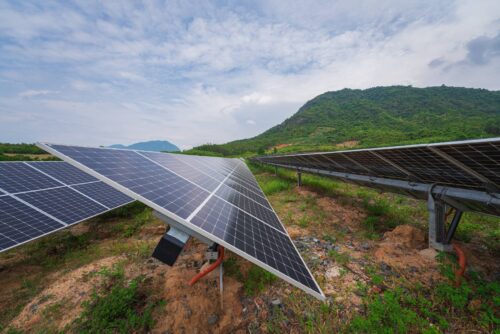
Report | 2022
Power Sector Growth without Liquefied Natural Gas
How to Leverage Clean Energy for Grid Expansion in the Global South
Countries globally face a need to invest significantly in their electricity systems to achieve diverse goals including energy access, reliable and resilient supply, affordability, and economic growth. Natural gas, seen in recent years as a priority solution for least-cost generation expansion to meet these growing needs globally, faces increasing headwinds driven by the ongoing global energy crisis and the increasing competitiveness of renewable energy.
This research brief summarizes options for electricity resource investment from two countries with distinct starting conditions and future trajectories — South Africa and Vietnam — that illustrate how prioritizing near-term investment in renewable energy can lower both costs and risks compared with heavy reliance on new gas power plants that require new liquefied natural gas (LNG) import capacity.
While individual countries’ investment pathways should be informed by country-specific needs and national priorities, these case studies suggest gas power plants supplied by imported LNG will have a far smaller role to play in affordable grid expansion globally than commonly assumed just a few years ago. In order to deliver an affordable grid expansion strategy that can support energy access and economic development, country-level decision makers have a pressing opportunity to reassess planned investment in gas power and LNG capacity.